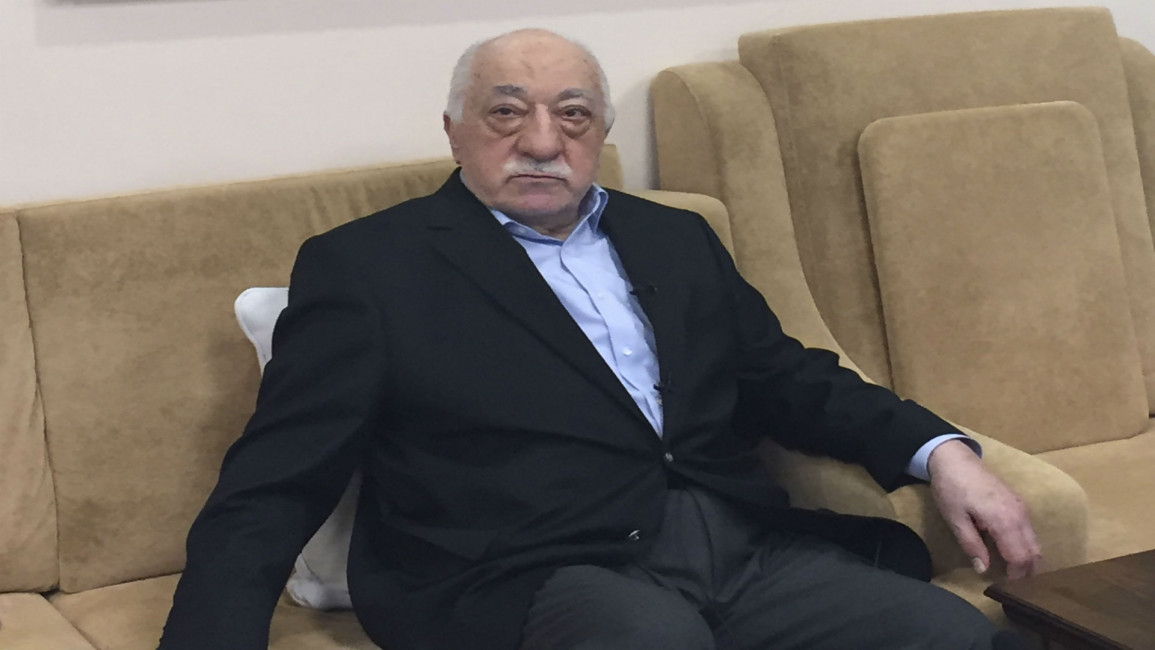Turkey indicted 'wrong man' during Gulen-linked Kosovo deportations
Turkey on Wednesday indicted six men who were controversially deported from Kosovo last year due to alleged links with Fethullah Gulen, an exiled cleric suspected by Turkey of orchestrating a coup attempt in 2016.
One of the indicted men was "knowingly" deported in the place of an accused man with a similar name, a Kosovan parliamentary report claimed last week.
The prosecution asked that the men, who have been held in prison for a year, be sentenced to prison terms ranging from 16 and a half years to 28 and a half years, Turkey's state news agency Anadolu reported.
They stand accused of "international espionage" and membership of an "armed terrorist organisation".
Turkey calls the Gulen's Hizmet (Service) movement the Fethullah Gulen Terrorist Organisation (FETO).
An independent report commissioned by the Kosovan parliament's security committee alleges that the six men were deported to Turkey with the aid of the Kosovan intellignence agency, Balkan Insight reported.
The informal extraditions sparked an outcry in the country after Prime Minister Ramush Haridanaj claimed he had not been informed.
The department for citizenship, asylum and migration was made aware of the operation more than two weeks in advance, the report claimed.
The report's most shocking allegation is that Kosovan authorities "knowingly" deported the wrong man, who now appears to have been indicted in Turkey.
Tasked with arresting and deported a man accused of links to Gulen named Hasan Huseyin Demir, the intelligence agency gave the police the photographs of two men with similar names.
When a border police official asked for clarification on who to deport, an intelligence officer told him to detain "whoever meets the photo identification".
Hasan Huseyin Gunekan, a Turkish national employed in a so-called Gulenist educational institution, was brought to the Pristina airport along with five other suspects, but insisted he was not the man intelligence officers were looking for.
"The photo is mine but these aren't my personal data," said Gunakan, according to the director of the directorate of migration and foreigners of the Border Police, Rrahman Sylejmani.
Despite those denials, Gunakan was deported to Turkey and indicted for "FETO membership" - largely based on evidence allegedly found in his phone.
|
|
"It sounds like the mistaken identity was due first of all to sloppy work from the Turkish sources that supplied Kosovar authorities with the names and photographs of those to be taken," Nate Schenkkan, Director of Special Research at Freedom House, told The New Arab.
"This is the only case I know of where the wrong person was rendered by Turkey from another country, but it is indicative of the casual disregard for evidence and due process that Turkey has shown in going after the Gulen movement."
Gunakan "used the right to remain silent" during the indictment, according to Anadolu Agency.
Turkey has abducted or forcibly extradited at least 100 Turkish citizens who are accused of links to Gulen since 2016 according to Foreign Minister Mevlut Cavusoglu.
Some of the "kidnappings" took place is Azerbaijan, Ukraine and Gabon, while the abduction attempt of a Turkish teacher in Mongolia was foiled last year.
Gulen and his followers built a large sphere of influence in Turkey and abroad over decades - notably in central Africa, the Balkans and Central Asia - often through operating dozens of schools, many of which have now been shut down by the Turkish government.
Turkey demanded the closure of Gulen-linked schools in a variety of countries following the 2016 coup attempt - a request to which many acquiesced.
At least 77,000 people have arrested and around 130,000 others have lost their jobs in the public sector for alleged associations with Gulen since 2016.
"Whether it is Gulenists or Gezi Park protesters, or whether it is pro-peace process academics or Kurdish activists, those who are accused of conspiracies face a steep uphill battle," said Schenkkan.
"The courts take a variety of associations as sufficient evidence of guilt, criminalizing association rather than focusing on specific criminal acts. For those kidnapped and brought back to Turkey, the odds are probably even worse."
The Kosovo Special Prosecution has said it will take the findings of the report into consideration during its ongoing investigation, Balkan Insight reported.
The US embassy in Kosovo on Tuesday denounced the deportations as an "egregious breach of democratic values".
"The issue is not the alleged guilt or innocence of the individuals, but rather the apparent circumventing of Kosovo’s legal processes by Kosovo politicians," said the embassy statement.
"Political pressure on the security sector to break Kosovo law is an egregious breach of democratic values. We urge full transparency in the security sector, and in the conduct of foreign affairs, to prevent inappropriate interference by Kosovo politicians in the future."



